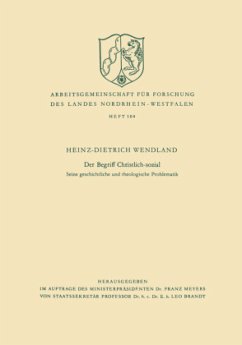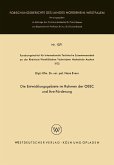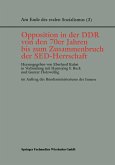This lecture is confined to the evangelical-social movement since Wiehern, and chiefly consists of: - 1. An indication of some of the theological and ecclesiastical factors that made the Christian-social movement possible. 2. An examination of the fundamental elements of the "Christian-social" idea, in particular in the work of J. H. Wiehern. 3. The synthetic "Christian-social" concept is questioned on a critical theological basis (e. g. in relation to Friedrich Naumann). 4. An enquiry into the original inheritance and the intentions of the move ment, in relation to its importance for present-day ehureh and society. In this examination the historical weaknesses and inhibitions of the move ment and its watchword are made evident, sueh as for example the movement's political conservatism and its dependance on anti-revolutionary roman ticism. Further examples, among others, are: - the movement's lack of under standing for the impulses of socialism and new economic developments, the vagueness of the "social" concept, and a lack of any theological and socio logical analysis of contemporary society. On the other hand, the greatness and the important historical fecundity of the Christian-social conception are also shown.
Hinweis: Dieser Artikel kann nur an eine deutsche Lieferadresse ausgeliefert werden.
Hinweis: Dieser Artikel kann nur an eine deutsche Lieferadresse ausgeliefert werden.








